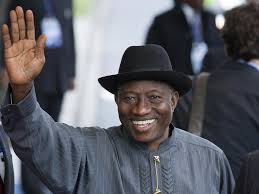Former President Goodluck Jonathan says Nigeria needs an independent office of the Registrar of Political Parties to address the growing crisis of political party indiscipline.
Jonathan made the recommendation at the public presentation of the National Action Plan for Electoral Reforms, organised by the Abuja School of Social and Political Thought, in Abuja.
Represented by Ms Ann Iyonu, Executive Director of the Goodluck Jonathan Foundation, he noted that while Nigeria had made progress since returning to democracy in 1999, the electoral system still faced serious challenges.
Jonathan stressed that if Nigeria was truly committed to democracy, citizens must be bold enough to reform the process to reflect the will of the people and uphold justice, accountability and inclusion.
He identified political party indiscipline as a major challenge, noting that parties which should serve as the foundation of democracy had become vulnerable to instability and opportunism.
*“We have seen a disturbing rise in the practice of cross-carpeting, elected officials defecting from the parties under which they were elected, often without ideological justification or accountability to the electorate.
“To remedy this, we should strongly consider the establishment of an independent office of the registrar of political parties, charged with regulating party operations, promoting internal democracy and enforcing party discipline.
“This is a proposal I had put forward on another occasion, but I believe it is good to re-emphasise it at a forum like this.
“During my assignment as an election observer in the last decade, I have seen this work effectively in some countries including Kenya and Malawi.
“Crucially, the office should have the power to declare the seat of any defector vacant. This reform would affirm the principle that the electoral mandate belongs to the people and not to individual ambition,”* he said.
Jonathan also proposed reforms in the appointment process of the chairman of the Independent National Electoral Commission (INEC), suggesting the creation of an independent screening and nomination body.
He said the credibility of elections rested on the neutrality and competence of INEC.
*“So many questions have continued to be raised on the propriety of the process of appointing the INEC chairman.
“Many countries in their democratic journey have found the need to reform the process.
“I believe that Nigeria can also improve by establishing an independent screening and nomination mechanism, comprising representatives from the judiciary, civil societies, academia and professional bodies.
“This body would vet and recommend a shortlist of qualified candidates, from which the president may appoint the chairman.
“This reform will reduce perceptions of bias, promote public trust in INEC and enhance the legitimacy of its decisions,”* he said.
The former president further proposed that all post-election litigations, especially those on final outcomes, should be concluded before the swearing-in of elected officials.
He said the current practice of allowing candidates with unresolved cases to assume office only to be removed later created confusion and undermined governance.
*“We must adopt a framework that compels the timely resolution of electoral disputes, possibly with specially designated election tribunals and timelines that align with the electoral calendar.
“Justice delayed in elections is justice denied, not just for the candidates, but for the electorate,”* Jonathan said.
While commending the Abuja school for its role in democratic development, he urged greater patriotism in strengthening Nigeria’s democracy.
*“Let us confront our democratic weaknesses with honesty and reform our system with courage.
“Let us continue to work together to build a Nigeria where elections are credible, leaders are accountable and democracy truly delivers for the people,”* he said.
(NAN)


